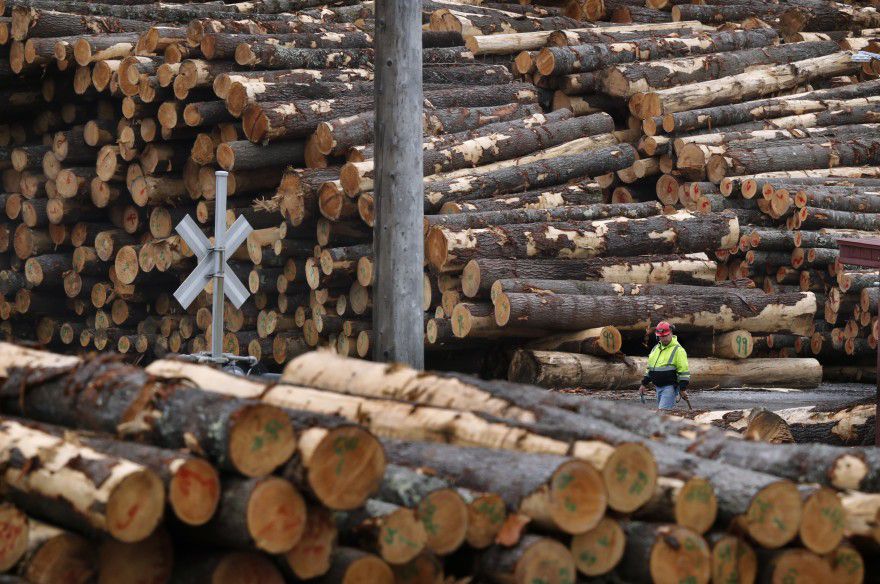A new report shows Maine’s forest products industry was responsible for more than $8 billion in economic impacts and nearly 32,000 associated jobs in 2019.
The state Forest Products Council commissioned and funded the study from researchers at the Margaret Chase Smith Policy Center at the University of Maine.
“Despite the challenges of past few years, Maine’s forest products industry still has an enormous impact on our state’s economy, especially in rural communities,” council executive director Patrick Strauch said in a press release.
The report says the forest products industry was responsible for about 4% of jobs in the state in 2019 — or one in every 25 positions. It also accounted for about 4% of the state’s gross domestic product, or one dollar out of every $25 generated.
Maine is the most heavily forested state in the country, home to the first sawmill in the U.S. in 1623 on the PIscataqua River. But the wood products industry has shed jobs in recent years, according to state data, shrinking by a third since 1990 as businesses moved overseas.
Maine as a whole is not growing jobs as quickly as the rest of the country, according to a 2016 UMaine report, due in part to its greying population, which is the oldest in the country. The state is tilting away from manufacturing and toward service industries, and the manufacturing sector is shifting away from timber and into new, higher-tech products.
A range of state programs and research institutes have worked to reverse these trends in recent years, forming business partnerships, reopening mills and studying everything from new wood composites for construction to 3D printing, biotechnology and advanced fuels derived from pulp.
The new UMaine study breaks down direct and “multiplier” impacts from the timber industry — including logging, biomass power production, saw and paper mills, and product manufacturing — and from surrounding sectors — from transportation and consulting, to the local businesses where people involved in the timber industry buy goods and services and spend their earnings.
The report says the forest products sector and its support businesses generated $5.5 billion in economic impact for the state in 2019, plus another $2.5 billion in those secondary effects.
Paper manufacturing was the top employer related to the industry, with 4,909 jobs, followed closely by wood product manufacturing and logging. Trucking was the top support sector employer. And a total of 14,849 jobs — nearly half associated with the industry overall — came from those indirect impacts, such as real estate, hospitals and other local businesses.
The report says the timber industry’s impact was greatest in Aroostook County, where it drove 5,225 jobs or 16.4% of the county’s total employment in 2019. Penobscot, Oxford and Cumberland counties ranked next for related jobs. The industry pushed 3.4% of its output toward state and local taxes in 2019, the study found, for a contribution of $276 million.




